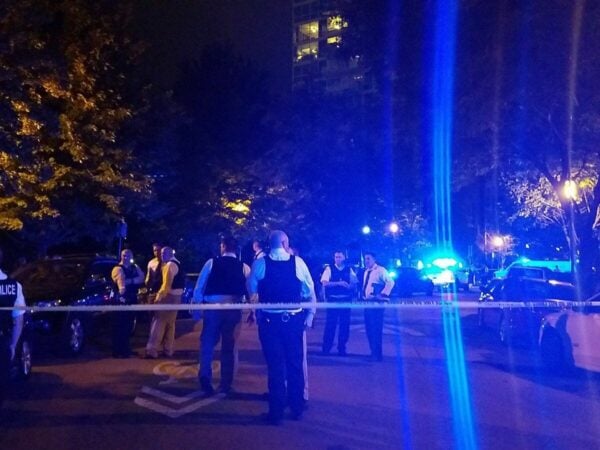
A Chicago police officer has died from self-inflicted wounds marking the third suicide within the department since July 1st.
In 2018, The Ruderman Family Foundation released a concerning White Paper on the the suicide rate of first responders revealing they are more likely to die by suicide than in the line of duty.
WGN reported:
A Chicago police sergeant hospitalized after suffering an apparent self-inflicted gunshot wound has died, authorities announced Sunday.
Officials released the following statement:
The Chicago Police Department is mourning the loss of the off-duty sergeant who succumbed to his injuries today. We ask that the city wrap its arms around this sergeant’s loved ones as they mourn his loss. Please also take a moment to pray for the men and women of CPD, who are grieving alongside this sergeant’s family.
According to police, the off-duty officer, who was reportedly in grave condition, was found yesterday in a Woodlawn-area home.
The death comes just two days after another Chicago police officer was found dead inside his residence in the 1st Police District. The medical examiner’s office ruled his death a suicide.
Many are criticizing Chicago Police Superintendent David O. Brown’s policies in the wake of the most recent suicides.
The Chicago Sun Times reported:
After the recent suicides of three Chicago police officers, the city’s top cop on Monday fended off rising criticism of his policy of routinely canceling days off, insisting the controversial practice is tightly controlled and has been common for decades.
But Supt. David Brown was immediately called a liar by the Fraternal Order of Police, and three members of the City Council say they plan to hold hearings on the mental health challenges facing police.Brown began his weekly news conference by honoring the three police officers who have died from self-inflicted gunshot wounds this month, two of them over the weekend.
“Each department member was loved and cherished by their families and friends,” Brown said. “They were respected and valued by their fellow officers and the people they served, and they selflessly served this city … and fought to make our communities safer.”
The deaths have highlighted the mental health issues facing sworn officers, and have renewed condemnation of the department’s decision to routinely cancel days off, a practice that underscores deep staffing woes.
In an interview with the Sun-Times on Sunday, the department’s former senior adviser on wellness decried the practice as “inhumane.”
“[Officers] really see these horrific, triggering events all the time,” said Alexa James, CEO of the National Alliance on Mental Illness Chicago, which trains recruits and consults with the department on mental health issues.
“And when you’ve compounded levels of trauma, and with no opportunity to kind of debrief unless you’re forced to, it can become increasingly likely that you develop stress disorders, depression [and] anxiety,” she said.
John Catanzara, president of Fraternal Order of Police Lodge 7, did not accept Brown’s characterization of department policies and insisted Brown was “lying.”
Catanzara said canceling days off “became a little more commonplace” starting in 2019 and ramped up again when the riots broke out the following summer. Still, he noted, it wasn’t until last year that it “became the norm.” Brown was hired in the spring of 2020.
In highlighting Brown’s disconnect with members of his department, Catanzara said the superintendent didn’t address officers who showed up at the morgue on Sunday to honor Sgt. Andrew Dodba, the latest police official to commit suicide.
“[He] had nothing to say because he has no credibility to the men and women of the police department when it counts,” Catanzara said. “He can say whatever he wants to the media because he can’t get challenged by the police officers, but nobody has any respect for that man who wears a uniform.”
The post Third Chicago Police Officer Dies By Suicide This Month appeared first on The Gateway Pundit.